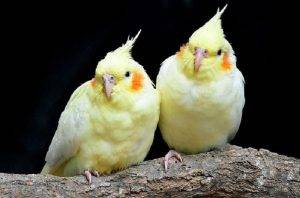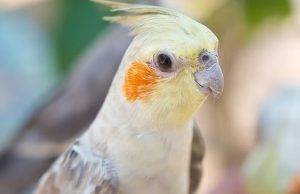Cockatiels, with their charming personalities and distinctive crests, are beloved companions for bird enthusiasts worldwide. These small parrots are known for their vibrant plumage, but what happens when those feathers start to look less than their best? Unhealthy cockatiel feathers can be indicative of underlying issues that need attention. In this comprehensive guide, we will explore common problems that can lead to unhealthy feathers in cockatiels, their causes, and how to address and prevent these issues.
The Importance of Healthy Feathers for Cockatiels
Feathers play a vital role in a cockatiel’s life. They serve multiple functions beyond aesthetic appeal:
- Thermoregulation: Feathers help regulate a cockatiel’s body temperature. They can fluff their feathers to trap warm air or flatten them for cooling.
- Flight: Feathers are essential for flight. Even though cockatiels are not long-distance fliers, healthy feathers are crucial for mobility.
- Protection: Feathers provide protection from elements, such as rain and wind, and serve as a barrier against parasites.
- Communication: Cockatiels use their crests and body language, including feather position, to communicate with other birds and their owners.
- Health Indicator: The condition of a cockatiel’s feathers can serve as an indicator of its overall health.
Common Issues Leading to Unhealthy Cockatiel Feathers
Feather Mutilation:
Feather mutilation is a behavioral issue where cockatiels excessively groom or chew their feathers, leading to damaged or missing plumage. It can be caused by stress, boredom, medical conditions, or skin irritation.
Poor Diet:
A nutritionally imbalanced diet can result in unhealthy feathers. A lack of essential nutrients, especially protein, vitamins, and minerals, can lead to feather abnormalities.
Stress and Anxiety:
Stressors such as changes in environment, loud noises, lack of social interaction, or the presence of predators (real or perceived) can cause feather problems in cockatiels.
Skin Infections:
Bacterial, fungal, or parasitic infections on the skin can lead to feather loss or damage. Feather-picking can exacerbate these issues.
Hormonal Changes:
Cockatiels go through hormonal changes during breeding seasons, which can affect their feathers. Some may pluck their feathers as a part of their courtship behavior.
Allergies:
Allergies to certain foods, environmental factors like dust or pollen, or even household cleaning products can result in skin irritation and feather problems.
Environmental Factors:
Cockatiels are sensitive to extreme environmental conditions. Exposure to drafts, temperature extremes, or high humidity levels can negatively impact their feathers.
Parasites:
External parasites like mites or lice can infest a cockatiel’s feathers and skin, causing itching and discomfort.
Aging:
As cockatiels age, their feathers may naturally become less vibrant and show signs of wear and tear.
Signs of Unhealthy Cockatiel Feathers
Recognizing the signs of unhealthy feathers in your cockatiel is crucial for addressing underlying issues promptly. Look out for the following signs:
- Feather Loss: Excessive feather loss or bald patches are clear indicators of a problem.
- Dull or Discolored Feathers: Healthy cockatiel feathers should be vibrant and glossy. Feathers that appear faded or discolored may signal an issue.
- Biting or Chewing: If you observe your cockatiel excessively preening, biting, or chewing its feathers, it could be a sign of feather mutilation.
- Frayed or Broken Feathers: Feathers that are frayed, split, or broken may suggest issues with grooming, diet, or environmental factors.
- Patches of Red or Irritated Skin: Redness, swelling, or irritation on the skin can indicate underlying skin infections or allergies.
- Fluffy Appearance: If your cockatiel maintains a constantly puffed-up appearance, it may be trying to compensate for discomfort or temperature regulation issues.
Addressing and Preventing Feather Problems in Cockatiels
Proper Diet:
Ensure your cockatiel receives a well-balanced diet that includes a variety of fresh fruits, vegetables, high-quality pellets, and a source of protein. Consult with an avian veterinarian for dietary recommendations.
Stress Reduction:
Create a safe and low-stress environment for your cockatiel. Offer plenty of mental stimulation, social interaction, and a consistent daily routine.
Grooming and Bathing:
Provide opportunities for your cockatiel to groom itself by offering a shallow dish of water for bathing. Keep the cage clean and dry to prevent skin irritations.
Environmental Considerations:
Ensure that your cockatiel’s living space is free from drafts, extreme temperatures, and high humidity levels. Use safe and non-toxic cleaning products.
Parasite Control:
Regularly inspect your cockatiel for signs of external parasites, and consult with a veterinarian for appropriate preventive measures and treatments.
Unhealthy Cockatiel Feathers
If you notice any signs of unhealthy feathers or behavior changes, seek prompt veterinary care. A veterinarian with avian expertise can diagnose the issue and recommend treatment.
Frequently Asked Questions (FAQs)
Can cockatiels regrow lost feathers?
Yes, cockatiels can regrow lost feathers during their molting cycles. However, feather loss due to other reasons, such as feather mutilation or health issues, may require intervention and veterinary care.
Is it normal for cockatiels to have some feather loss during molting?
Yes, it is normal for cockatiels to experience some feather loss during their natural molting cycles. New feathers will grow in to replace the old ones.
How often do cockatiels molt?
Cockatiels typically undergo molting cycles about once or twice a year. The timing and duration of molting can vary among individuals.
Can feather problems in cockatiels be contagious to other birds or pets?
Some feather problems in cockatiels can be caused by contagious parasites, such as mites. It is essential to isolate affected birds and seek veterinary care to prevent the spread of parasites to other birds or pets.
Related Post:
Deciphering the Ideal Space Requirements for Ducks
Unveiling the Mysterious Egg-Laying Habits of Ducks
Exploring the Essential Role of Duck Grit in Avian Health
Unhealthy cockatiel feathers can be a visible indicator of underlying issues affecting your feathered friend. By understanding the common problems that lead to feather-related concerns, recognizing the signs of unhealthy feathers, and taking proactive steps to address and prevent these issues, you can ensure that your cockatiel maintains its vibrant and healthy plumage, enhancing both its well-being and the joy of having it as a cherished companion.




